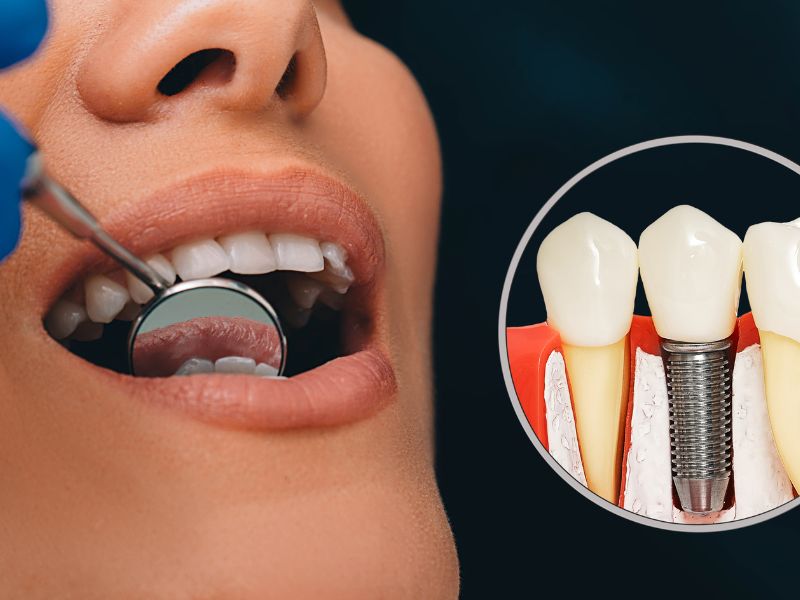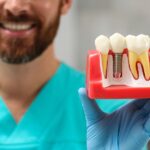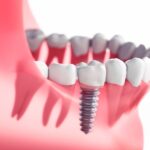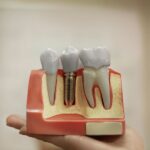Do you have a few missing teeth and are looking for a long-term way to replace them? If so, you may have heard of dental implants. Dental implants are a newer alternative to replace missing teeth and restore your smile. Oral implants are surgically placed into your jawbone and are designed to function like natural teeth.
However, just like natural teeth, dental implants also require proper care and maintenance; this will ensure their longevity and prevent any complications, such as them falling out.
In this article, 5 maintenance tips for dental implants will be discussed, so you can learn a bit more about how much work goes into keeping them in your mouth – where they should be!

Brush and floss regularly
It is crucial that you brush and floss your dental implants regularly, just like you would with natural teeth. This can help prevent the build-up of plaque and bacteria that can cause gum disease and other oral health problems.
Try to use a soft-bristled toothbrush and non-abrasive toothpaste, as both of these will avoid damaging the implant. If you aren’t sure which type of toothpaste is best for you, talk to your dental Coorparoo about a suitable option.
Use an antibacterial mouthwash
Using an antibacterial mouthwash will also help to reduce the number of bacteria that live in your mouth, which can prevent infections and other oral health problems.
Rinse your mouth with mouthwash for about 30 seconds twice a day, preferably after brushing and flossing. This will prevent gum disease, which, in turn, will prevent premature loss of the implants.
Related Posts
Avoid hard and sticky foods
Avoid eating tough and sticky foods, such as hard-boiled sweets, nuts, popcorn, and ice, as they can damage your dental implants or even cause them to come loose. Instead, opt for softer foods that are easier to chew and won’t put too much pressure on your implants.
This is especially important when you have just had your implants fitted, as eating hard or sticky foods can cause your implants to fuse at an odd angle.
Visit your dentist regularly
Regular dental check-ups with your dentist are essential to maintain the health of your dental implants. Your dentist will examine your implants and ensure that they are in good condition, as well as ensuring that they are fusing during that all-important 3 to 9 months after they have been fitted.
They will also clean your implants and remove any plaque or tartar build-up that could cause problems. It is recommended you visit your dentist at least twice a year for dental implant cleanings, as this will prevent gum disease, which may lead to the implants falling out.
Quit smoking
Smoking can have a significant impact on the health of your dental implants. Smoking can lead to gum disease, which can lead to implant failure, as well as oral cancer, which can cause this issue along with a lot of other ones.
Additionally, smoking can delay the healing process after implant surgery, increasing the risk of complications. If you are a smoker, it is recommended to quit smoking to maintain the health of your dental implants.
If this is hard, talk to your dentist about smoking cessation. Any surgical or invasive procedure carries risks. Before proceeding you should seek a second opinion from an appropriately qualified health practitioner.




